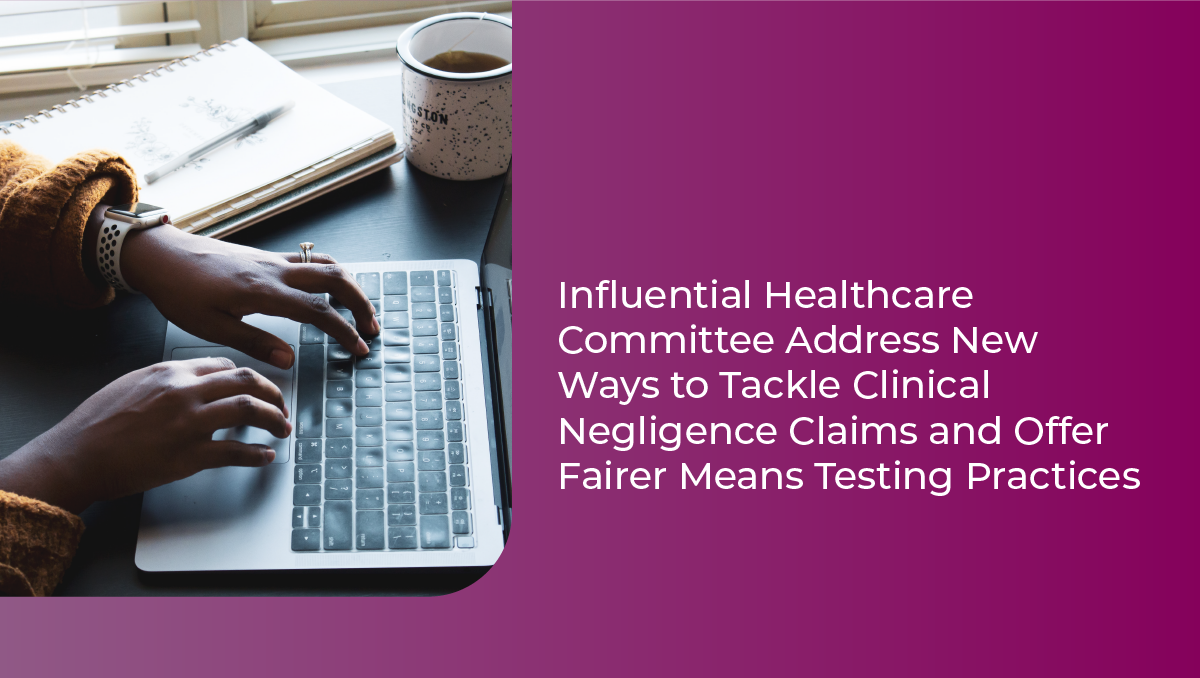
7 Sep 2021
Influential healthcare committee address new ways to tackle clinical negligence claims and offer fairer means testing practices
A report recently compiled by The Commons Health and Social Care Committee brought into sharp focus what its contributors described as a ‘particularly unfair’ means by which to calculate compensation in many clinical negligence cases.
The report - which was overseen by the former Health Secretary, Jeremy Hunt - raised concerns about an existing system of compensation which significantly determined compensation amounts based on lost earnings.
The issue being that wealthier families were more likely to receive greater levels of financial compensation for a severely disabled child, for example, than a poorer family would be entitled to, following current protocols and practices.
Unjust means of calculating clinical negligence compensation highlighted by recent influential committee’s findings
The influential committee argued that the existing system by which establishing clinical negligence compensation figures was largely arrived at by referencing private healthcare costs, needed to be revisited and essentially overhauled. While in its place, appropriate NHS care should be the primary benchmark where available.
The committee also expressed a desire to address the ‘debilitating culture of blame’ which has a recurrent habit of arising based on the adversarial nature which surrounds the clinical negligence litigation processes.
Instead, it suggests a greater emphasis placed on learning opportunities on the back of incidents which inevitably pave the way for a compensation claim. Together with abolishing outdated mechanisms by which sums were calculated.
Current clinical negligence awards system under government review
In conclusion, the committee drew specific attention to maternity services here in England and went as far as to say that in its opinion the present clinical negligence system is potentially harmful both for patients and the NHS.
The Law Gazette reports that the gist of the findings was summarised by the committee in the following sentence: ‘It is clear to us that in its current form the clinical negligence process is failing to meet its objectives for both families and the healthcare system,’ said the report. ‘Too often families are not provided with the appropriate, timely and compassionate support they deserve.’
UK could reset its clinical negligence button to become more in-line with other countries approach
Citing the fact that other countries were already facilitating a threshold of ‘avoid-ability’ in a move away from the historic arena of ‘negligence’ as such, there’s growing insistence that a future resolution ethos should be inspired by proactivity rather than reactivity.
Committee members were however quick to point out that financial redress for families affected by clinical negligence - especially in terms of maternity claims - remained important. Yet called on the government to look at alternative resolution schemes during its current reviewing of the clinical negligence system.
Medical reports still at heart of clinical negligence cases, with Speed continuing to lead the way
One core element which is pivotal to the clinical negligence process is the requirement of medical reports. Something which Speed Medical has specialised in for over 21 years.
Our panel of over 5,000 healthcare experts has been providing an extensive suite of clinical negligence reports throughout this timeline, covering all the primary touchpoints in this specialised sector. Not least the 1,000-plus experts who possess a body of experience in clinical negligence cases, and in particular, Katie Lynch; our in-house Clinical Negligence Solicitor, whose own background centres on birth-related instances.
In terms of what clinical negligence medical reports our experts create, these routinely include everything from GP and consultant screening reports through to breach of duty, causation, and condition and prognosis reports. All of which are critical aspects of the clinical negligence compensation journey as it stands and has done to date.
In addition to this service provision, our dedicated Clinical Advisory Board shadow the work undertaken by our expert witnesses, members of which are all hand-selected medical experts benefitting from a wealth of knowledge and experience in various clinical negligence disciplines.
Get in touch with our team today to find out more about how our clinical negligence experts can help further your client’s case.
Footnote: Maternity incidents have been identified as the single highest cost of claims against the NHS in England, while in 2019/20, NHS Resolution paid £2.3bn in compensation and associated costs for maternity claims. This figure represents 40% of all claim payments.




